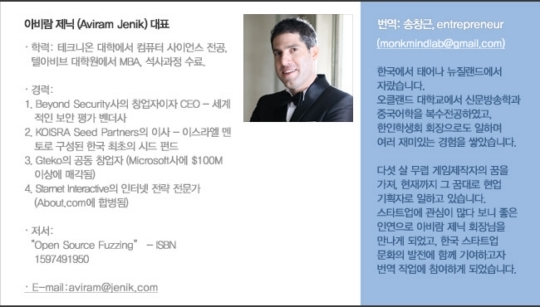블랙스완 이론이란 이런 식입니다. 당신을 16세기 영국에 사는 사람이라 가정하고, 백과사전에 담을 동물의 종류를 나열 해본다 칩시다. 그리고 이 상태에서 `조류(Birds)` 항목에 들어섰다고 해봅시다. 당신은 평소에 많이 보아오던 백조에 대해선 아주 자세히 적을 수 있을 것입니다. 그런데 갑자기 어떤 동물 전문가가 당신에게 와 이 세상에 흑조(黑鳥)가 존재하는 지를 묻습니다.
흑조가 세상에 존재하나요? 당신은 아직 흑조를 본 적이 없습니다. 호수 가로 내려가 살펴보아도 당신 눈 앞에 보이는 백조들은 모두 하얗습니다. 수백 마리를 살펴봐도 그렇습니다. 주변의 동료에게 묻고, 또 호수 가 근처에 사는 사람들에게도 물었지만, 결국 흑조를 봤다는 사람은 아무도 없습니다.
이로써 당신은 결론을 내립니다. 이 세상에 흑조란 없구나, 라고 말입니다. 그 정보를 담은 당신의 백과사전은 순조롭게 판매되었고, 독자들은 당신의 지식에 감명 받습니다. 그리고 수십 년이 지난 뒤, 호주 대륙이 발견됩니다.
그리고 당신은 그 신대륙에 흑조가 엄연히 존재한다는 사실, 그 것도 수 백만 마리나 존재한다는 사실을 알고 충격을 받습니다. 흑조는 이제 영국에도 수입되어 당신의 백과사전은 가치를 잃어버리게 되었습니다. 전문가로서의 명성도 추락하고 맙니다.
동물 전문가의 주장이 틀린 것을 증명하는 게 중요한 일은 아니라 볼 수도 있겠지만, 이런 건 어떻습니까? 당신 스스로를 터키라고 생각해보는 겁니다. 네, 그 크고 못생긴 새 말이지요. 당신은 미대륙에서 당신의 친구 새들과 함께 태어나고 자라왔으며, 주변의 모든 환경은 완벽했습니다.
지난 달 터키들의 정기 모임에선, 모든 상황들이 점점 더 좋아지고 있다는 데 모든 터키 친구들이 동의합니다. 먹이도 풍부하고, 어디든 자유롭게 돌아다닐 수 있으며, 아프기라도 하면 인간이 나서서 고쳐주니까요. 지난 몇 달 간은 단 한 마리의 터키도 죽지 않았고, 태어난 아기 터키들은 아주 건강하고 점점 더 살이 오르고 있습니다.
이들은 이렇게 결론 내립니다. 터키들의 삶은 그 질이 매달 점점 더 좋아지고 있고, 그리하여 다음 달 말 즈음에는 상황이 더욱 더 좋아질 것이라고요.
그러나 애석하게도 다음 달 말이 되자, 태어난 지 3년이 된 늙은 터키들은 모두 추수감사절의 저녁 식사를 위한 희생양이 되고 맙니다. 이로 인해 죽음을 맞이한 모든 터키들에게는 이 것이 바로 `블랙 스완 이벤트`인 셈이죠.
이렇듯 상상도 할 수 없는 사건이 일어나는 것이 전혀 희귀하다거나 예상 할 수 없는 것은 아닙니다. 비슷한 개념으로 `흑조` 가 존재할 수 없는 동물은 아니지요. 단지 발견되지 않은 동물이었을 뿐입니다. 터키들이 그들의 목숨을 앗아간 추수감사절을 예상하지 못했던 것과 같이 말이죠.
한국 또한 이런 `블랙 스완` 이벤트를 겪게 될 것입니다. 그 일이 언제 일어날 지는 모르지만 우리는 이 일이 반드시 일어날 것을 알고 있고, 또 실제로 일이 일어났을 때 모두가 놀라움에 가득 찰 것이라는 사실도 알고 있습니다. 어떤 독자들은 이렇게 물어볼 수도 있겠네요. 일어날 일임을 알면서도 어떻게 놀라할 수 있느냐고요.
그러나 같은 이유로 영국의 학자들은 흑조의 발견 소식을 듣고 매우 충격 받았답니다. 2001년의 닷컴 붕괴 때도 주식매매자들은 주식시장이 영원히 성장하지 않는다는 것을 깨달으며 충격을 받았었고, 2008년의 침체기 때도 부동산이 영원하지 않음을 배우며 충격을 받았던 것처럼 말이죠.
전문가들은 이러한 현상을 `무작위로 굴린 주사위에서 숫자 6이 나오는 것은 무작위 확률이지만, 주사위를 굴릴 횟수와 시간만 충분하다면 이런 일(= 주사위를 굴려 숫자 6이 나오는 일)은 언제든지 일어날 수 있다`고 설명합니다.
한국의 블랙 스완 이벤트가 있다면, 그 것은 바로 재벌이 무너지는 일일 것입니다. 2013년 부로 한국의 재벌 3개 회사는 대한민국 GDP의 50%를 차지하게 되었습니다 (미국의 경우, 50%의 GDP는 113개의 회사에 의해 이뤄져 있습니다).
단 3개의 회사가 한 국가의 GDP를 절반이나 차지하는 것은 아주 좋지 않은 현상인데, 왜냐하면 이러한 큰 회사들은 언젠가 결국 무너지기 때문이지요. 1994년에 출간된 `Built to last` 이라는 아주 유명한 책을 보면 50년 이상 드넓은 지지를 받아왔던 19개의 회사가 10년 뒤에는 그 절반 정도가 파산하였거나 실적이 크게 떨어지는 모습을 보여줬다고 합니다.
이렇듯, 이 3개의 재벌 회사들도 영원히 존재하지 못할 것을 우리는 알 수 있습니다. 그들이 어느 날 갑자기 추락할 수도 있는 것도 우리는 예상할 수 있습니다. 그리고 실제로 이런 일이 일어났을 때, 우리는 그 사실에 매우 놀라할 것임도 예상해볼 수 있는 일입니다. 그래놓고는 이런 일들은 예상하지 못했던 사건이라고 말할 테고요.
재벌이 무너져 내리는 것에 대한 전조는 바로 스타트업 경제입니다. `블랙 스완` 책의 저자인 나심 탈레브 교수는 완전히 예상하지 못할 것 같은 `블랙 스완` 이벤트의 해결책에 대한 공식 설명을 가지고 있다 합니다. 그리고 이 해결책을 취약성(Anti-fragility)이라 불렀고요. 다음 칼럼에서는 이 ‘취약성’에 대해 이야기 해보도록 하겠습니다.
On black swans and Chaebols
I want to tell you a story about a black swan. I don’t mean the film starring the gorgeous Israeli actress Natalie Portman. I mean the mathematical theory developed by Nassim Taleb, that proved to be correct in the great dot com crash of 2001 and again in the great recession of 2008.
Here is the idea: Lets say you are living in 16th century England, and trying to map out the different animal species for an encyclopedia. You reach the ‘birds’ section. You of course detail the beautiful white swan, which you’ve seen many times. The encyclopedia now asks you, the animal expert, if there exists a black swan.
Is there? You’ve never seen one. You go down to the lake, and start watching swans. Every swan you see is white; you go through hundreds. There is not a single black swan in sight. You ask your colleagues, and then people that live near the lake, and no one has ever seen a black swan.
You conclude: there is no such thing. There are no black swans anywhere in the world. Swans cannot be black! Your readers are impressed by your knowledge and the encyclopedia sells well. And then, a few decades later, Australia is discovered and explored. You are shocked to find: Black swans exist, and are available in the Millions. Black swans are now imported to England; your encyclopedia is now worthless. Your reputation as an expert crashes.
Maybe you may not think proving an animal expert wrong is such a big deal; how about this: Imagine you are a Turkey. Yes, I mean the large ugly bird. You live in America with your fellow Turkey birds and since the time you were born (about 3 years ago) everything has been great. In the last monthly Turkey meeting, held at the end of October according to the Human calendar, all Turkeys agree things can only get better: Turkeys are fed well, given freedom to roam the fields, and the humans make sure to fix any illnesses. There have been no Turkey deaths in months, and all the Turkey babies you were born with are healthy and getting fat. Turkey experts conclude: Turkey life gets better every month, and thus by the end of next month we expect to gather again and be even better.
Alas, at the end of November all the 3 year old Turkeys are gathered, and made into Thanksgiving dinners. This is the end of our Turkey colony. For the Turkeys (now all dead) this is a “black swan event”. Completely unexpected, since life was so well.
But this unimaginable incident (from the Turkeys perspective) was not rare or unexpected; similarly, a ‘black swan’ was not an impossible animal. It was just an animal never seen before; just like a Thanksgiving dinner was something Turkeys have never seen before (until it was too late for the Turkeys).
Korea is scheduled to have a ‘black swan’ event too. We don’t know when, but we know it will happen; and we know we will all be surprised when it does. You may ask: how can we be surprised from an event we know will happen?
For the same reason English scholars were shocked to hear of the black swan; or dot-com stock traders were shocked in 2001 to realize the stock market won’t go up forever or the real estate traders were shocked to discover in 2008 that real estate won’t go up forever.
Experts tend to call these events “random, but rolling the dice and getting a ‘6’ is also a random event. Yet, this random event will certainly happen, given enough time and dice rolls.
Korea’s black swan event is the implosion of the Chaebols. As of 2013, the three Chaebols are 50% of Korea’s GDP (compared to the US, where 50% of the GDP is in the hands of 113 companies).
Having 3 companies responsible for half of the nation’s GDP is a bad idea because big companies eventually fail: the very popular book “Built to Last” came out in 1994 and listed 18 companies that are widely admired, have been in business for 50 years or more and made huge impact on the world.
But just 10 years later, half of those companies came close to bankruptcy and have had significant drop in performance. Likewise, we know for a fact that the three Korean Chaebols won’t survive forever; we can expect their fall to be very sudden; and we can expect everyone to be surprised when it happens. They will all say it was a random event that cannot be expected.
The antedate against a Chaebol implosion is a startup economy; Nassim Taleb, author of the ‘black swan’ theory has a formal explanation for the solution against seemingly random ‘black swan’ events. He calls this solution “anti fragility”. I’ll explain all about it in my next column.

�
관련뉴스














